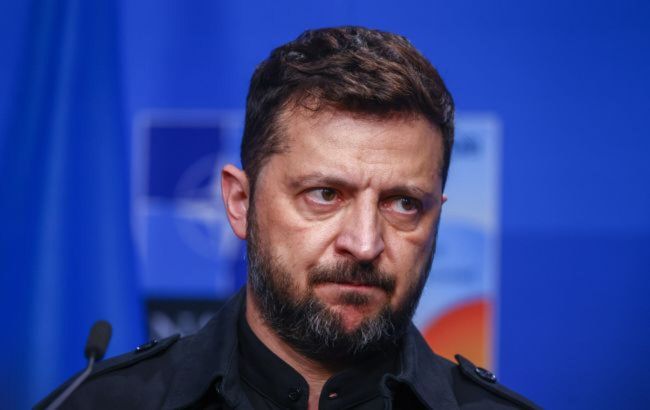Zelenskyy: Europe still buying Russian energy, that's problem
 Photo: Volodymyr Zelenskyy (Getty Images)
Photo: Volodymyr Zelenskyy (Getty Images)
Europe has reduced imports of Russian oil and gas by 80%, but some countries remain dependent on these resources, prompting criticism and calls for tougher sanctions.
Ukrainian President Volodymyr Zelenskyy said this in an interview with Sky News.
Ukrainian President Volodymyr Zelenskyy said Europe still cannot fully give up Russian gas and oil, which is dangerous for Ukraine since daily trade between Russia and European countries directly affects the length of the war and costs Ukrainian lives.
The biggest importers remain Slovakia and Hungary, along with a number of countries that buy energy through third states. Belgium and France continue to receive gas. Zelenskyy stressed that this trade prolongs the war and costs lives, urging allies not to think about future relations with Russia after the war but to focus on helping Ukraine and tightening pressure on the Kremlin.
Why Europe bought Russian energy
For decades after World War II, Europe’s energy infrastructure was built around cheap Russian supplies. Gas pipelines ran through Ukraine, the main transit state, while oil deliveries created a system of economic interdependence. Over time, Moscow began using oil and gas as political tools, manipulating prices and undermining energy security for both Ukraine and Europe.
Changes after 2022
Following Russia’s invasion, Europe cut imports of Russian oil and gas by 80%, thanks to new supply sources and investment in alternative infrastructure. But full abandonment of Russian energy has not yet happened.
US stance and Trump's position
US President Donald Trump argues that if Europe truly wants to be tough on Russia, it must completely stop buying its energy. Recently, he urged Brussels to impose sanctions on third countries, including China and India, that continue to trade with Moscow. In his view, half-measures only weaken sanctions and give Russia resources to wage war against Ukraine.
Attacks on Russian refineries
Meanwhile, Russian state company Transneft, which handles over 80% of the country’s oil, may have to reduce production after drone attacks. On the night of 16 September, the Saratov refinery was hit, with explosions and fires reported. The Kirishi refinery in the Leningrad region, one of Russia’s largest, also cut operations after a Ukrainian drone strike on 14 September.

